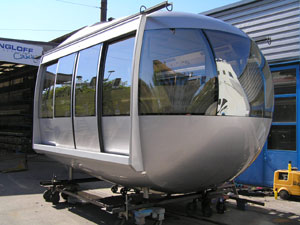The Wall Street Journal today has a lengthy article about the Siemens company bribing government officials to get contracts. Among other things, Siemens builds light-rail cars.
As far as I know, Siemens has never bribed an American public official to get a contract to for its rail cars — at least, not in the sense of paying people under the table. Instead, it routinely makes large contributions to political campaigns involving light rail.








